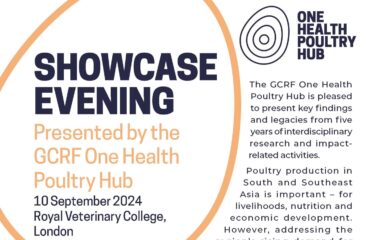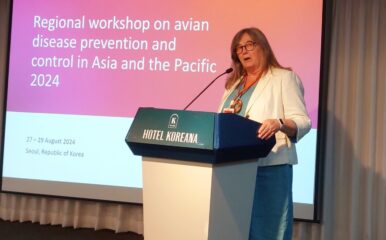
Hub builds Bangladesh researchers’ statistical skills
Published on 18/05/2022

Pangkaj Kumar Dhar
Early career researchers (ECRs) in Bangladesh were able to boost their skills in advanced statistical analysis thanks to a re-routed One Health Poultry Hub Flexible Fund mobility grant.
The training, ‘Descriptive and advanced statistical analysis in STATA’, familiarised the researchers in a software that enables users to analyse, manage and produce graphical visualisations of data.
The funding for the initiative had been originally awarded to Hub ECR Nurun Nahar Chisty of the Bangladesh team, for her to undergo a broad range of training at Hub lead partner the RVC. When this became impossible because of COVID-19 and consequent travel obstacles, the alternative STATA training was arranged.

With the training, which took place in March, Nurun and 13 other ECRs are now able to analyse the meta-data on foodborne zoonotic pathogens such as Salmonella and Campylobacter detected in chickens sampled by the Hub in South and Southeast Asia. It will also enable them to analyse the status of antimicrobial residues found in birds. Nurun said:
“The training was very helpful to meta-analyse data produced by systematic literature review as well as comprehensive enough to analyse a wide range of data for quantitative research.”
Professor Md. Ahasanul Hoque, National Coordinator for the Hub in Bangladesh, organised the training and Probir Kumar Ghosh, Senior Statistician at the International Centre for Diarrhoeal Disease Research, Bangladesh (icddr,b), helped deliver it. The training was held over three sessions, with the first taking place virtually, followed by two face-to-face workshops held at Hub partner institute the Chattogram Veterinary and Animal Sciences University (CVASU).
Feedback showed that most of the participants felt the quality and content of the training materials along with the training sessions themselves were either very good or excellent. They said they could see themselves using their new skills in meta-analysis, Bayesian statistics, risk factor analysis and sampling techniques in the near future.


